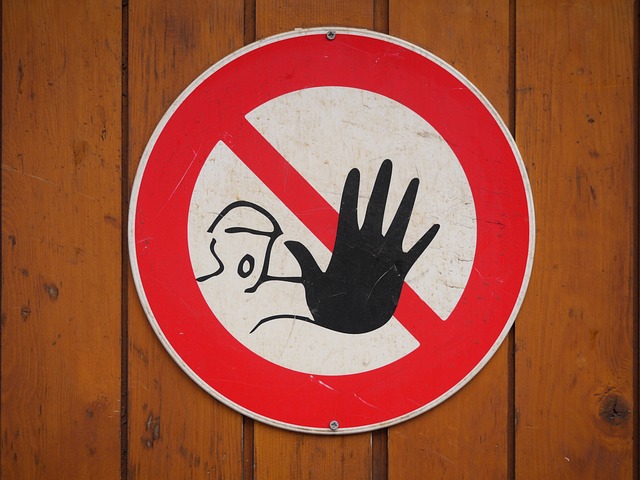In today's competitive retail landscape, hiring trustworthy employees is crucial. Effective screening processes, including thorough background checks, are essential for customer safety and legal compliance. Retail employee screening goes beyond basics to verify history, preventing risks like theft or fraud. Comprehensive checks, such as criminal record reviews and reference verifications, identify potential issues in high-theft areas. This proactive approach enhances operational efficiency, reduces losses, and builds a positive brand image based on trust and security, ultimately prioritizing retail staff credentials and fostering a safer shopping environment.
In today’s dynamic retail landscape, ensuring the integrity and security of your workforce is paramount. Effective screening processes, including thorough background checks and customer safety assessments, play a pivotal role in upholding retail industry compliance and legal standards. By implementing robust retail background verification methods, businesses can fortify their staff credentials, mitigate risks, and ultimately prevent retail theft. This comprehensive guide explores these essential practices to help retailers navigate the complexities of hiring qualified, trustworthy employees.
- Understanding the Importance of Retail Employee Screening
- Types of Background Checks for Retail Employees
- The Role of Customer Safety Checks in Retail Environments
- Compliance and Legal Considerations for Retail Industry
- How Retail Background Verification Impacts Staff Credentials
- Preventing Retail Theft: A Key Benefit of Thorough Screening
Understanding the Importance of Retail Employee Screening

In the competitive retail landscape, hiring qualified and trustworthy employees is paramount for business success. Effective screening processes, such as background checks, are essential tools to ensure customer safety and maintain industry compliance. Retail employee screening goes beyond verifying basic credentials; it involves a thorough examination of an applicant’s history to safeguard against potential risks like theft or fraud. By implementing robust retail background verification methods, businesses can mitigate these threats and foster a secure shopping environment.
Retail staff credentials are not just about checking off boxes; they are pivotal in upholding the integrity of the retail industry. Comprehensive customer safety checks, including criminal record reviews and reference verifications, help identify red flags that may have been overlooked. This proactive approach to retail employee screening is particularly crucial in high-theft areas or when handling valuable inventory. By prioritizing these checks, retailers can reduce losses, enhance operational efficiency, and create a positive brand image built on trust and security.
Types of Background Checks for Retail Employees

Background checks are an integral part of retail employee screening, ensuring that only qualified and trustworthy individuals enter the workforce. These checks serve as a robust tool for retail industry compliance, as they help in maintaining customer safety and securing retail stores from potential theft or fraud. One of the primary types is criminal background verification, which delves into an applicant’s history to identify any felonies, misdemeanors, or outstanding warrants. This process helps assess their integrity and suitability for roles that require handling cash or sensitive information.
Additionally, many retailers conduct reference checks, where they reach out to previous employers or colleagues to gather insights into the candidate’s work ethic and reliability. Employee screening also involves checking qualifications and credentials, ensuring staff members possess the required skills and certifications for their specific tasks. This may include training records, sales performance metrics, or product knowledge assessments, all of which contribute to retail theft prevention and enhancing customer experiences.
The Role of Customer Safety Checks in Retail Environments

In the dynamic and often fast-paced retail environment, ensuring customer safety and protecting business assets are paramount. Background checks for potential retail employees play a pivotal role in achieving this balance. Comprehensive retail employee screening, including thorough background verification, acts as a robust safeguard against internal theft and ensures compliance with industry standards. By delving into an applicant’s history, employers can uncover potential red flags related to integrity, honesty, or prior criminal activities that might impact their ability to interact with customers and handle inventory responsibly.
Retail staff credentials are not just about verifying identity; they serve as a critical tool for risk management. Customer safety checks, integrated within the retail background verification process, help identify individuals who may pose a threat or have a history of behavior unbecoming of a retail environment. This proactive approach to screening not only deters potential perpetrators but also fosters a culture of trust and security among customers and employees alike. Effective retail theft prevention strategies rely on these checks to safeguard merchandise and maintain the integrity of the shopping experience.
Compliance and Legal Considerations for Retail Industry

In the competitive retail landscape, ensuring customer safety and protecting business interests are paramount. Background checks for retail employee integrity, including retail employee screening and retail background verification, serve as a crucial component of risk management strategies. These processes go beyond simple customer safety checks to verify the qualifications, criminal history, and character of prospective staff members. By implementing robust retail industry compliance measures, retailers can mitigate potential legal issues and enhance their overall operational integrity.
Retail employers must adhere to applicable laws and regulations when conducting retail staff credentials checks. This includes understanding and respecting privacy rights while gathering necessary information to prevent retail theft. Effective retail background verification techniques not only safeguard against dishonest employees but also promote a culture of transparency, trust, and accountability within the workforce, fostering a safer and more secure shopping environment for customers.
How Retail Background Verification Impacts Staff Credentials

Retail Background Verification plays a pivotal role in ensuring the integrity of staff credentials and enhancing customer safety checks within the industry. By conducting thorough background checks, retailers can mitigate risks associated with hiring unqualified or potentially dangerous individuals. This process involves verifying employment history, criminal records, and personal references to gauge an applicant’s suitability for a retail position.
Effective retail background verification is essential for maintaining compliance with industry standards and preventing retail theft. It allows employers to identify red flags that may indicate past misconduct, substance abuse issues, or other disqualifying factors. By screening prospective employees, retailers can create a safer work environment, protect valuable inventory, and foster a positive customer experience. Moreover, it helps in building a robust team of reliable staff members who are committed to upholding the highest standards of integrity and professionalism.
Preventing Retail Theft: A Key Benefit of Thorough Screening

Retail stores face significant challenges when it comes to maintaining a safe and secure environment for both employees and customers. One of the most critical aspects in mitigating these risks is implementing robust screening processes during employee recruitment. Thorough background checks for retail employee integrity are essential tools in ensuring that only qualified, trustworthy individuals gain access to valuable merchandise and sensitive customer information.
Retail background verification goes beyond simple resume review and includes comprehensive checks into an applicant’s history, such as criminal records, previous employment references, and education verification. These customer safety checks are vital for retail industry compliance and help identify potential risks or red flags that may indicate a candidate’s unworthiness. By verifying the credentials of retail staff, businesses can minimize instances of retail theft, protect their assets, and foster an environment where employees feel trusted and motivated to uphold high standards of integrity.






